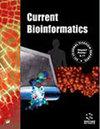MFTP 工具:用于多功能治疗肽预测的广泛深度学习框架
IF 2.4
3区 生物学
Q3 BIOCHEMICAL RESEARCH METHODS
引用次数: 0
摘要
背景:多功能治疗肽(MFTP)的鉴定和功能预测在药物发现,尤其是炎症和高血糖等疾病的药物发现中发挥着关键作用。目前的计算方法在准确预测这些多肽的多功能性方面存在局限性。方法:我们提出了一种新颖的广泛深度学习框架,它整合了深度学习和机器学习方法。深度学习部分使用神经网络模型处理词向量,而广度学习部分则在基于随机森林的模型中利用肽的物理化学特性。这种混合方法旨在提高 MFTP 功能预测的准确性。结果我们的框架在精确度、覆盖率、准确度和绝对真实值方面都优于现有的 PrMFTP 预测器。评估是在训练数据集和独立测试数据集上进行的,这证明了我们模型的鲁棒性和通用性。结论所提出的宽amp; 深度学习框架在 MFTP 功能的计算预测方面取得了重大进展。我们的模型可以通过MFTP-Tool.m6aminer.cn上的用户友好型网络界面获得,这为基于治疗肽的药物发现领域的研究人员提供了一个宝贵的工具,有可能加速新疗法的开发。本文章由计算机程序翻译,如有差异,请以英文原文为准。
MFTP-Tool: A Wide & Deep Learning Framework for Multi-Functional Therapeutic Peptides Prediction
Background: The identification and functional prediction of Multifunctional Therapeutic Peptides (MFTP) play a pivotal role in drug discovery, particularly for conditions such as inflammation and hyperglycemia. Current computational methods exhibit limitations in their ability to accurately predict the multifunctionality of these peptides. Methods: We propose a novel Wide and Deep Learning Framework that integrates both deep learning and machine learning approaches. The deep learning segment processes word vectors using a neural network model, while the wide segment utilizes the physicochemical properties of peptides in a random forest-based model. This hybrid approach aims to enhance the accuracy of MFTP function prediction. Results: Our framework outperformed the existing PrMFTP predictor in terms of precision, coverage, accuracy, and absolute true values. The evaluation was conducted on both training and independent testing datasets, demonstrating the robustness and generalizability of our model. Conclusion: The proposed Wide & Deep Learning Framework offers a significant advancement in the computational prediction of MFTP functions. The availability of our model through a userfriendly web interface at MFTP-Tool.m6aminer.cn provides a valuable tool for researchers in the field of therapeutic peptide-based drug discovery, potentially accelerating the development of new treatments.
求助全文
通过发布文献求助,成功后即可免费获取论文全文。
去求助
来源期刊

Current Bioinformatics
生物-生化研究方法
CiteScore
6.60
自引率
2.50%
发文量
77
审稿时长
>12 weeks
期刊介绍:
Current Bioinformatics aims to publish all the latest and outstanding developments in bioinformatics. Each issue contains a series of timely, in-depth/mini-reviews, research papers and guest edited thematic issues written by leaders in the field, covering a wide range of the integration of biology with computer and information science.
The journal focuses on advances in computational molecular/structural biology, encompassing areas such as computing in biomedicine and genomics, computational proteomics and systems biology, and metabolic pathway engineering. Developments in these fields have direct implications on key issues related to health care, medicine, genetic disorders, development of agricultural products, renewable energy, environmental protection, etc.
 求助内容:
求助内容: 应助结果提醒方式:
应助结果提醒方式:


